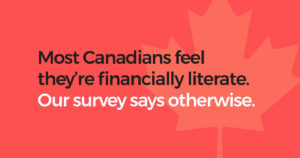I recently received my home insurance renewal notice. The company I deal with merged (or was bought out?) by another company and the accompanying letter advised reviewing the policy to make sure I was getting the appropriate coverage.
Being obsessive that way, I did go through it with a fine-tooth comb. I don’t want to be disappointed if I ever have to make a claim.
Do you know exactly what your home insurance policy covers?
Are you planning a vacation this summer?
Since an unoccupied home is at greater risk of damage and susceptible to break-ins, you may not be covered while you are away. Coverage may only be provided for a certain number of days. If your house will be empty for longer than that minimum you will probably be required to have someone visit your home on a regular basis – generally every three to seven days, depending on your policy.
Water coverage depends a lot on your policy
I was really glad to find out I had been paying an extra $12 for extended water coverage (I didn’t actually pay attention to it before) when a major sewer backup flooded my basement. My neighbours – who assumed they were automatically covered – were giving me the stink eye when the clean-up and restoration crews pulled into my driveway and totally rebuilt my basement.
Typically, this coverage is for when water backs up into your home from a sanitary or storm sewer that overflows, or any accidental water seepage from burst pipes, for example.
Check to see what your limit is. If you did extensive and costly renovations to your basement, a $10,000 limit is not going to cut it for you.
What we think of as “flood” insurance – when water gushes in to your home due to a river or lake overflowing its banks – was not available in Canada until recently (2015). If you build your dream home five metres away from a babbling brook that triggers only a “hundred-year flood,” be safe and buy the optional coverage.
Home insurance doesn’t cover your home’s market value
Home insurance covers only the actual cost to repair or replace your home as it was before the loss.
Insurance companies will look at the overall maintenance of your home. You need to keep up with repairs. You are not usually covered if you have cracks in your foundation, loose window casements, or a leaky dishwasher that allow water to seep through.
Related: Our house insurance bill is up 30 percent!
They will take into account depreciation of your roof and garden shed, and the condition of that (dead) tree in your yard that crushed the neighbour’s gazebo.
You can’t say, “I hope there’s a big wind storm that knocks down my (broken down) fence so I can replace it with a nice new cedar fence.”
Personal property is almost always covered for replacement cost at today’s prices. Actual cash value will only pay today’s value for the item, prorated for age, use and condition.
However, you must actually replace the items and provide receipts. The insurance company won’t just hand you a cheque.
Condominium corporation insurance doesn’t cover your condo
This insurance covers the building structure, such as roof or windows, and common areas. It does not cover the contents of your own condo, or third-party liability if you cause damage to other condo units. You need your own separate policy. My condo corporation insurance has a $25,000 deductible if I cause any damage – so I made sure that this liability was included in my personal policy.
Likewise, if you are a tenant, your landlord’s insurance is not going to cover you. A lot of renters don’t bother getting tenant’s insurance – as you have probably noticed when you hear of a building fire in the news and the tenants have lost everything.
What’s personal liability protection?
Personal liability protection only covers accidental injury to other people on your property, or damage to another person’s property.
So, if you get sued by your neighbour after punching him in the face during an altercation – you are on your own.
Final thoughts
Home insurance is not regulated like auto insurance. In fact, unless you have a mortgage, you are not obligated to even have it.
Policies can differ widely and may not fully protect you. Sometimes you need to pay a bit more to add a rider to the policy for your valuables, or to protect against different risks.
Know what’s covered. What are the coverage limitations? Don’t assume that insurance will pay for all damages. Update your policy if necessary to best protect your property. It doesn’t make sense to reduce your coverage in order to save a bit of money.
 Marie Engen is the “Boomer” half of Boomer & Echo. In addition to being co-author of the website, Marie is a fee-only financial planner based in Kelowna, B.C. This article originally ran at the Boomer & Echo site on June 27th and is republished here with permission.
Marie Engen is the “Boomer” half of Boomer & Echo. In addition to being co-author of the website, Marie is a fee-only financial planner based in Kelowna, B.C. This article originally ran at the Boomer & Echo site on June 27th and is republished here with permission.
 How much to save for retirement depends on the type of lifestyle you’re aiming for
How much to save for retirement depends on the type of lifestyle you’re aiming for








